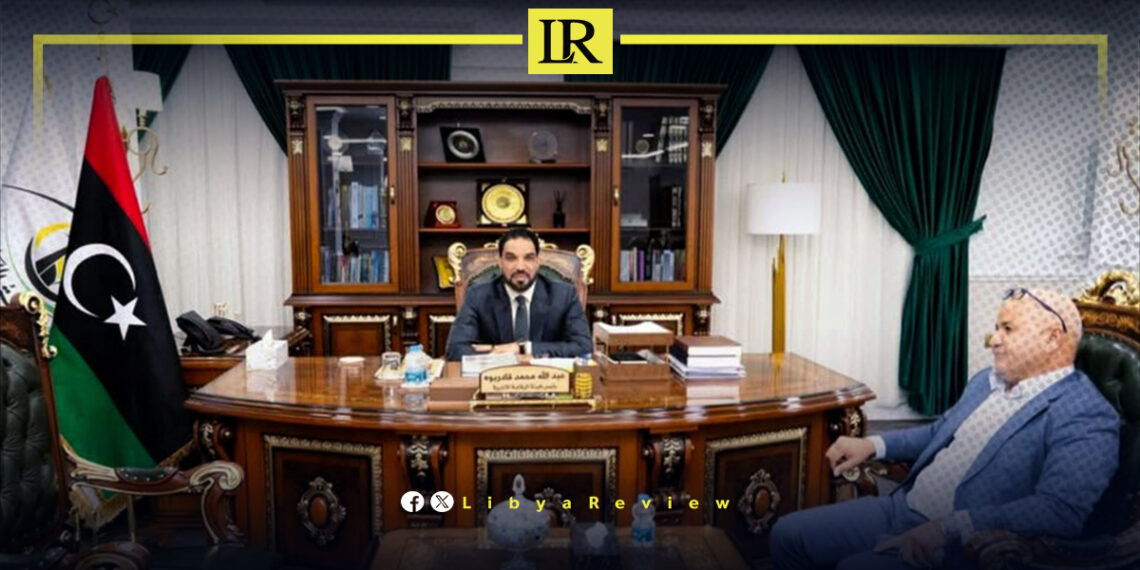On Tuesday, Abdullah Qaderbuh, Head of Libya’s Administrative Control Authority (ACA), met with Member of Parliament Miloud Al-Aswad to discuss enhancing transparency, combating money laundering, and addressing legislative gaps in anti-corruption efforts.
The meeting focused on mechanisms to combat money laundering and terrorist financing, as well as the recovery of stolen and smuggled assets. The officials also reviewed shortcomings in Presidential Council Decree No. 1013 of 2017, which has been criticized for undermining oversight. Qaderbuh presented a draft law prepared by the ACA aimed at correcting these legislative deficiencies.
The discussion emphasized the need to modernize supervisory tools, strengthen accountability, and align national efforts with international standards. Qaderbuh highlighted the importance of leveraging Libya’s recent memberships in the Arab Anti-Corruption Network and the Makkah Agreement to enhance regional cooperation in combating corruption and financial crimes .
arabacinet.org
This meeting aligns with Libya’s broader strategy to improve governance and restore public trust through institutional reforms and international collaboration.
Libya has been in chaos since a NATO-backed uprising toppled longtime leader Muammar Gaddafi in 2011. The county has for years been split between rival administrations.
Libya’s economy, heavily reliant on oil, has suffered due to the ongoing conflict. The instability has led to fluctuations in oil production and prices, impacting the global oil market and Libya’s economy.
The conflict has led to a significant humanitarian crisis in Libya, with thousands of people killed, and many more displaced. Migrants and refugees using Libya as a transit point to Europe have also faced dire conditions.
The planned elections for December 2021 were delayed due to disagreements over election laws and the eligibility of certain candidates. This delay has raised concerns about the feasibility of a peaceful political transition.
Despite the ceasefire, security remains a significant concern with sporadic fighting and the presence of mercenaries and foreign fighters. The unification of the military and the removal of foreign forces are crucial challenges.


